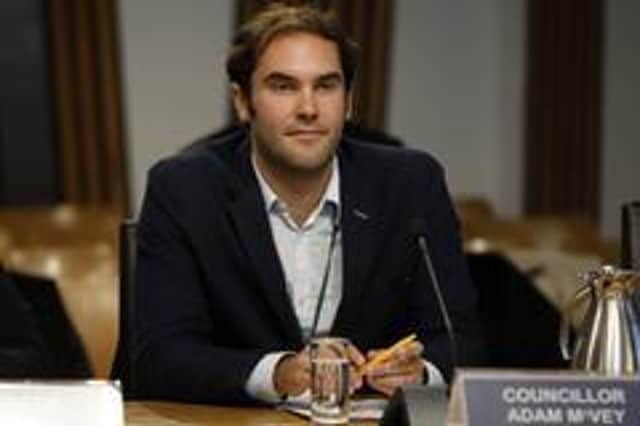Does Covid black hole in city's finances mean the era of big local government in Edinburgh is over?


IT was no surprise when Lothian Tory MSP Jeremy Balfour argued that, faced with even less in the way of money to spend after the Covid crisis, Edinburgh City Council should consider reducing the scope of its activities.
“Does the council need to do everything it’s doing?” he asked during an online panel discussion hosted by Edinburgh World Heritage earlier this month. “The council is a bit like the Fringe - it’s got bigger and bigger and bigger but maybe not always better. Can we focus in on our priorities rather than necessarily have such a far-reaching role?”
Advertisement
Hide AdAdvertisement
Hide AdThe Conservatives are traditionally the party of small government, and Mr Balfour - who previously served on the council - was applying that philosophy to the current predicament.
But it was a bit more surprising when the SNP council leader Adam McVey, rather than shoot down Mr Balfour’s argument, issued his own warning that things might indeed change quite dramatically.
“The financial situation of the city is almost unprecedented,” he said. “And to take some of what Jeremy is saying on board, we will have to have a very honest direct conversation as politicians and as a city about what services are our priorities, because some of these things are going to have to look very different after we emerge from this.”
Edinburgh is currently facing a black hole of more than £50 million in its finances. And Cllr McVey went on: “Unless someone comes with a magic wand and fills that budget gap - and to be really clear, the Scottish Government does not have that level of funding sitting in a bank account they’re able to pay councils to fill these gaps - then we are going to have conversations that are difficult ones about our long-term future and priorities.”
Advertisement
Hide AdAdvertisement
Hide AdOver recent years we have become sadly accustomed to council warnings about lack of cash and controversial proposals for spending cuts and increased charges. But this sounds like city leaders preparing to go further.
Cllr McVey told the Evening News last week the council would have to reconsider what services it provides after the coronavirus crisis. “A lot of that might be about just doing things differently and some of it might be about what is now unsustainable for us to be carrying on.”
There were no specific suggestions, though he did talk about the use of council offices and options for co-locating with other public services and pointed to the huge role played by community groups during the lockdown in providing much-needed meals and other services to local people. “There may well be scope to look at how we use that community resilience and if there are better ways of supporting vulnerable people that are not necessarily direct council services,” he said.
Local groups have indeed rallied round in an impressive way to help people during the lockdown, but some communities might feel it is a little ironic if the council now wants them to provide services when several of them were due to have their funding cut.
Advertisement
Hide AdAdvertisement
Hide AdCouncils are crucial not just for carrying out the basics, like emptying the bins and teaching children, but also running libraries, museums and a host of other things which enhance people’s lives and are provided as shared public services, not to make a profit.
One lesson of the Covid crisis has been the recognition once again of the important role of the state.
Surely that has to be relevant at local level too.
Comment Guidelines
National World encourages reader discussion on our stories. User feedback, insights and back-and-forth exchanges add a rich layer of context to reporting. Please review our Community Guidelines before commenting.